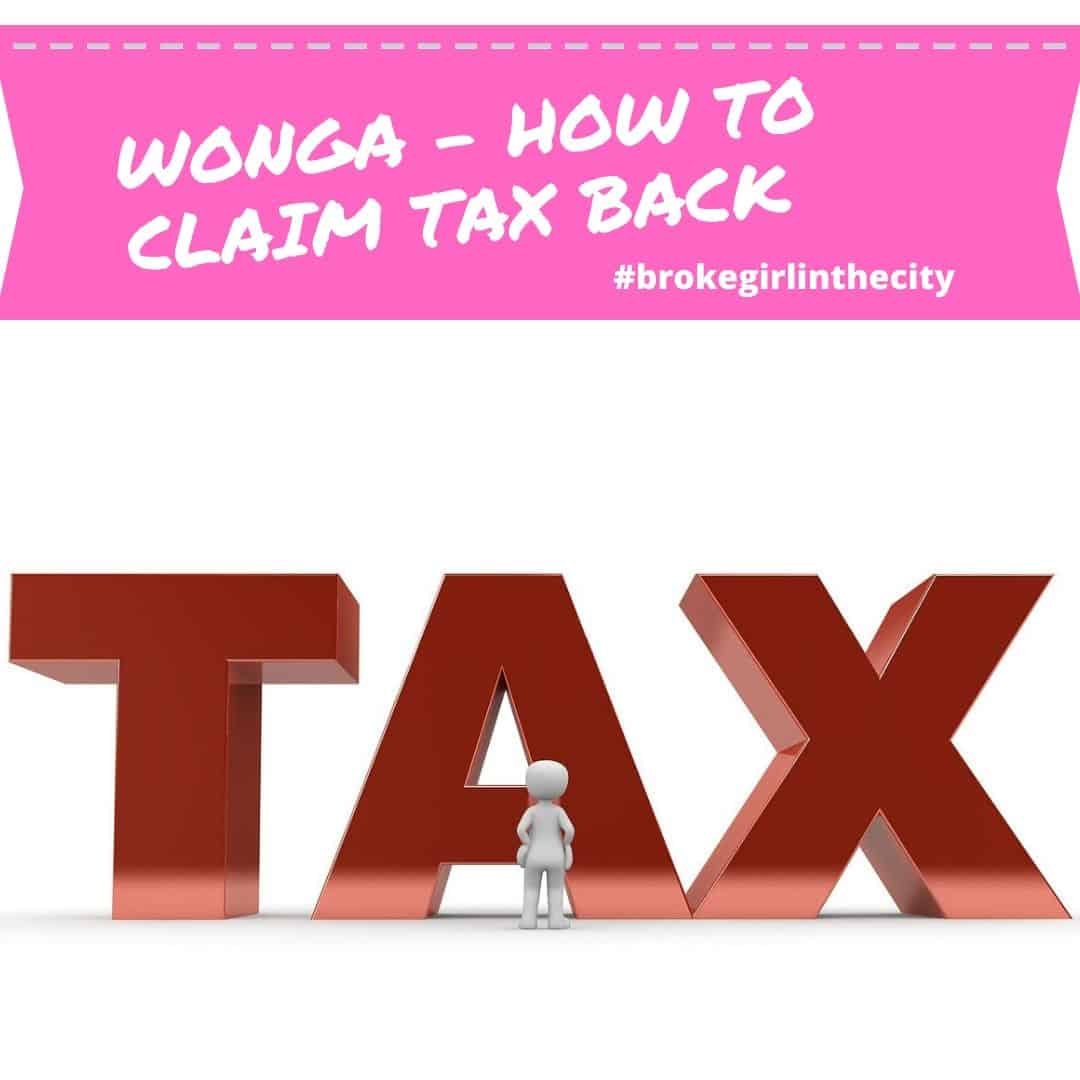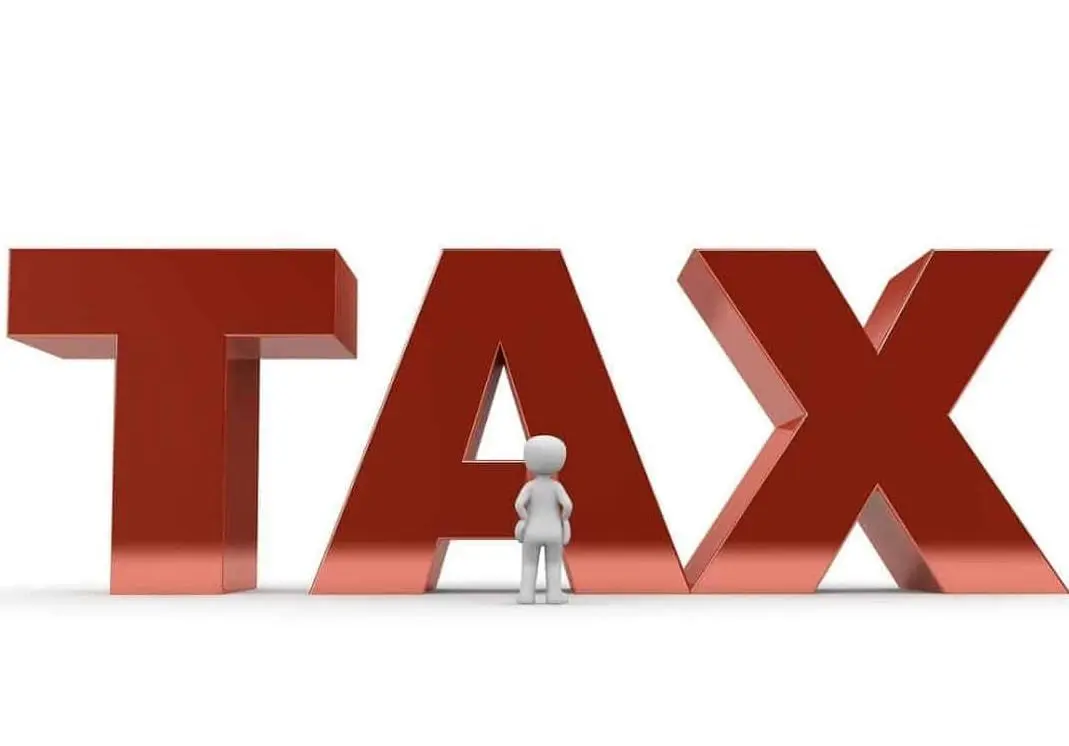
Wonga Payout Update – Claim your tax back from the final refund
Wonga issued emails to all of its claimants this week with news on their payout. However, what is not really communicated too well, is that the 8% interest on the final refund will be subject to tax by HMRC.
It seems incredible that part of the monies owed through Wonga will then be taxed from source, as it heads back into our accounts. So I thought I would try and demystify this and show how to claim the tax back.
What is the withholding tax charge element to my claim?
The administrators issued the below statement. Suggesting that you should seek independent financial advice or to check out the HMRC Website if you want to find out more information.
‘If your claim is accepted, we are required by law to withhold 20% tax from the 8% statutory interest element of the claim amount.’
This amount is simple interest at a rate of 8% per annum, which is to compensate the customer for being deprived of the money they had paid to the firm for the PPI/Payday loan company.
I thought I would take this opportunity to look at this in more detail so that we can get as much money back as possible. What to keep in mind is that you can claim for PPI refunds too.
Deduction of income tax from interest relating to compensation
According to the HMRC website, legalisation was passed in 2013 to amend The Finance Act 2013, to tax interest paid on any compensation paid from financial institutions.
So, Interest that is payable to an individual in respect of compensation is to be treated as a payment of yearly interest. As a consequence, the person paying the interest will be required to deduct income tax at source from it. This is subject to a regulation-making power to allow this requirement to be disapplied if necessary.
The legislation applies to interest paid on any form of compensation. A common example is likely to be interest relating to compensation paid for financial mis-selling, in particular, compensation paid by banks, building societies and other financial institutions.
So to paraphrase this, HMRC won’t tax the refund itself. Just 20% of the 8% interest paid out in as part of this compensation.
Let’s break it down…
I have published my claim against Wonga to show how this is all calculated by the administrators.
| Guide | ||
| Total interest and fees on loans | £1,407.66 | 1 |
| Total compensatory interest | £782.78 | 2 |
| Less previous write off(s) | £ | 3 |
| Accepted claim value | £2,190.44 | 4 |
How is my claim value calculated?
1. “Total interest and fees on loans”
For all accepted loans, the value of this component of the claim value is the total interest and fees paid in relation to that specific loan. A breakdown of this amount by loan is provided at the bottom of this email.
2. “Total compensatory interest”
An additional 8% of interest is included for each accepted loan from the date of the loan to the date of the Joint Administrators’ appointment (31 August 2018). The amount stated is the gross amount of your claim for compensatory interest before deduction of any UK withholding tax.
3. “Less previous write off(s)”
If a value is showing here this amount has been written off previously and you have already received the benefit. We have therefore removed this from your accepted claim value.
4. “Accepted claim value”
This is the value of your claim. However, as stated above, the payment you receive will be significantly smaller than your accepted claim value.
What was the assessment criteria?
If a loan’s value was greater than 30% of your income at the time that you took out the loan, your claim for that loan has been accepted.
Can I appeal the decision?
Basically – no. This is the final claim value assessed by the Joint Administrators. Any loans that have not been included have been rejected on the grounds that they do not meet the criteria. The final amount has been shared from the final amount awarded by the administrators to claimants. If anyone wanted to appeal they had 21 days from the initial email sent out.
How much can I claim back?
20% tax has been deducted from the 8% interest from source, which is the Basic Rate for tax in the UK. How much Income Tax you pay in each tax year depends on:
- how much of your income is above your Personal Allowance
- how much of your income falls within each tax band
The current tax year runs from 6 April 2019 to 5 April 2020. The standard Personal Allowance is £12,500, which is the amount of income you do not have to pay tax on. Any tax back you will be owed is paid by HMRC once the tax year is over.
The table below shows the tax rates you pay in each band if you have a standard Personal Allowance of £12,500. A full guide can be found here.
| Band | Taxable income | Tax rate |
|---|---|---|
| Personal Allowance | Up to £12,500 | 0% |
| Basic rate | £12,501 to £50,000 | 20%* |
| Higher rate | £50,001 to £150,000 | 40% |
| Additional rate | over £150,000 | 45% |
Deduction of tax: yearly interest
Tax exemptions do not apply to interest relating to compensation which is treated as yearly interest. Everyone is entitled to £1,000 in savings without this being taxed. However, anything over this amount is.

How to make a claim?
Having spoken to HMRC today, they have responded that as we are coming up to the end of the tax year, most of this will all be all sorted by HMRC. However, if you want to make a claim, you need to fill in an R40 form.
Complete an R40 form to claim tax deducted
If you’re not registered for Self Assessment and you think you’ve paid too much tax on your savings you can claim a repayment by either:
- using the R40 online service
- fill in the R40 form on-screen, print it off and post it to HMRC
To use the online service, you need a Government Gateway user ID and password. If you do not have a user ID, you can create one when you use the service.
Note: The time limit for making a claim is 4 years after the end of the tax year you are claiming for. For example, a claim for 2015 to 2016 must be received by us by 5 April 2020. Every tax year needs a separate claim form.
